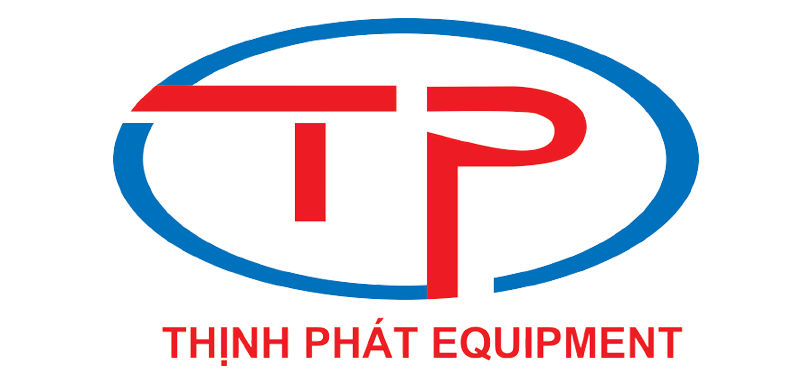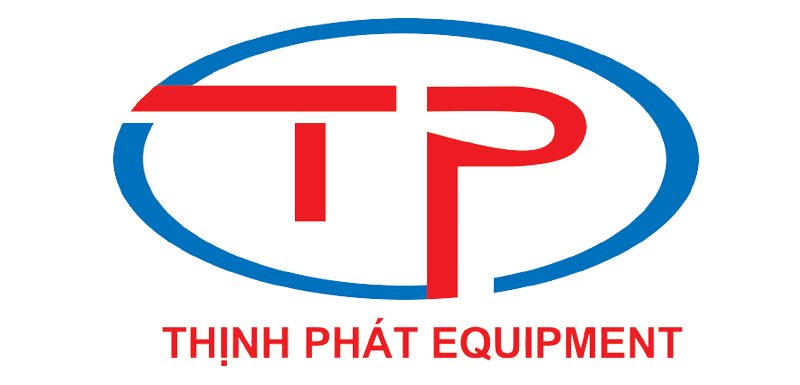Miscellaneous Expenses
Many seemingly minor expenses, such as office supplies, transaction fees, and work-related subscriptions, can be deducted from taxable income. While airfare and hotel stays are easy to track, smaller expenses like service tips, baggage fees, in-flight Wi-Fi, and ground transportation often slip through the cracks. To maximize deductions and ensure full reimbursement, keep a detailed record of all costs. Tracking such expenses properly (as shown in the image above) ensures accurate financial reporting, better budgeting, and maximized tax benefits.
Keep track of fees you pay for consultants as well as fees for services from outside professionals who advise you on business matters. These accounting and legal fees may be considered miscellaneous expenses and may be tax-deductible. These expenses may include legal fees, professional fees, business travel, and automobile use for business purposes. Also, employers with employees may be able to deduct the premiums they pay for workers’ compensation insurance. Tax deductions can be made on miscellaneous expenses, as is the case with any other operating expense of a business. Come tax season, you can write off your miscellaneous expenses in the same way you claim your other business operating costs on your tax returns.
Businesses can take this deduction on Schedule A (Form 1040), with the choice of either deducting the repayment or claiming a tax credit, depending on which offers the better tax outcome. This is particularly relevant when a business mistakenly receives income that is later required to be returned. Proper categorization and documentation of these expenses can maximize deductions and maintain clarity in your accounting processes. Office supplies may include essentials such as stationery, printer ink, and equipment maintenance.
Consult with Bookkeeping Professionals
Business owners should take the necessary steps to track these miscellaneous expenses for more accurate financial reporting. In accounting and finance, miscellaneous expenses are costs that a business incurs that do not fit neatly into any other specific expense category. These expenses are often infrequent, irregular, or relatively minor in comparison to other business expenses. They are recorded as part of a company’s financial statements, typically under operating expenses.
The IRS requires that deductible business expenses be both “ordinary” (common in your industry) and “necessary” (helpful for business operations). For example, a freelance designer can deduct software subscriptions, while a consultant might write off professional membership fees. Tracking miscellaneous expenses isn’t just about organization; it has a direct impact on tax savings. Up next, we will discuss the tax implications of these expenses and how businesses can take full advantage of deductions. Every business incurs expenses, but not all costs fit neatly into standard accounting categories.
A tax deduction can be made on miscellaneous expenses for business use based on your country’s regulations. Accounting helps business owners and managers keep track of their finances by keeping track of various expenses. It means they can identify potential opportunities or risks more quickly and uncover hidden costs or wasted resources. They can include legal fees, audit fees, marketing expenses, professional development training, and travel costs. Ultimately, your company’s choice of words for miscellaneous costs will depend on the situation and industry standards. Most importantly, all employees must know what the term means and be able to explain it to report their related costs correctly.
Cost for Subscription-based Service
For a small business, a $50 purchase might be classified as miscellaneous, while larger enterprises might set thresholds of $200 or more before creating dedicated expense categories. Many banking elements, such as interest, are covered in other areas of the tax form. There are a few in the U.S. that fall through the cracks, such as bank service charges and overdraft fees. These small charges can add up, and many tax forms do not have a place to note them. If you’re looking for a streamlined approach to managing expenses with clarity and precision – book a demo for free today and see how Alaan can transform your business’s financial efficiency. Proper accounting ensures these expenses are well-documented and don’t disrupt financial reports or tax filings.
Miscellaneous Expenses are Not Investment-Related Expenses
They are distinct from regular operating expenses and can have repercussions on tax filings and financial statements. Miscellaneous expenses are unclassified business expenditures that don’t fit neatly into standard accounting categories. They’re typically small, infrequent, or unexpected costs that would be impractical to create dedicated budget lines for. This aspect ensures that money isn’t spent on frivolous purchases and helps keep costs low. Keeping track of miscellaneous expenses makes it possible to identify areas where they can cut the budget if necessary. It’s even more important when a company doesn’t have much money or resources to work with.
- During a particularly busy quarter filled with pitches to prospective clients, the agency exceeds its client entertainment budget due to several last-minute dinner meetings at upscale restaurants.
- Miscellaneous expenses are all expenditures that don’t fit into any other category.
- Fee-basis officials must also use Form 2106 to report their expenses, and these deductions can be claimed directly as adjustments to income rather than as itemized deductions.
- Miscellaneous expenses can be defined as a cost that generally does not fit any specific account ledger or tax category.
- Proper documentation of all business expenses, no matter how small, helps businesses stay compliant with tax regulations and avoid potential penalties.
Scenario 1: Unexpected repair costs
If you want to cut down your taxable income, you must know what miscellaneous expenses fall under the IRS guidelines. Understanding the differentiation between these two types of expenses is crucial for assessing a company’s financial performance and operational efficiency. Operating expenses, such as salaries, rent, and utilities, are essential for day-to-day business activities and are incurred regularly. Most financial experts recommend keeping miscellaneous expenses under 5% of total operating expenses for optimal financial visibility and control. Smart businesses use miscellaneous expenses as a financial early warning system – a place where new spending patterns can emerge and be identified before they impact profitability.
What Does Miscellaneous Expense Mean?
Properly recording these expenses is crucial for accurately reflecting the company’s financial position, adhering to accounting principles, and maximizing tax deductions. Without meticulous documentation, a business risks misrepresentation of its financial health and may face compliance issues during audits or when filing taxes. The miscellaneous expenses category offers an easy and concise method to record small expenditures that are too insignificant to warrant their own account, which are all lumped into one general account.
Check IRS regulations for more information on what can be claimed as a home office expense. Tools and miscellaneous meaning in business supplies refer to items that are necessary for the operation of your services (such as small tool expenses) and can be categorized as miscellaneous expenses. Typically, tools with a lifespan of one year or less are worth less than $200 and would fall under this category. Small, periodic, or one-off costs for clothing required for your work — such as a uniform or protective clothing, can be considered for deductions. However, these miscellaneous clothing expenses can only be written off in certain instances and as dictated by your country’s regulations. A tax deduction, for example, could be made for work clothes required for safety reasons, such as PPE wear.
- Miscellaneous expenses are unclassified business expenditures that don’t fit neatly into standard accounting categories.
- Discretionary expenses, on the other hand, are those that are not essential for the day-to-day operations but may contribute to the overall well-being of the organization.
- By tracking, categorising, and accurately recording every small expense, companies not only strengthen their financial reporting but also open the door to potential cost savings and tax benefits.
- These examples show how miscellaneous expenses can capture costs that do not fit into any other category or relate to specific one-off items or services.
- Miscellaneous expenses refer to a number of unpredictable and assorted costs that fall outside the standard expense categories for businesses.
Businesses keep various types of journals and ledgers for accounting purposes and financial record-keeping. Specific types of income and expenses warrant their dedicated ledgers, such as a sales ledger and utility ledger for incoming and outgoing expenditures. Keeping close tabs on miscellaneous expenses also allows businesses to understand how much money their company spends and make changes as needed to remain profitable. Another way can be to keep track of the expenses in order to identify a pattern of the expenses for adjusting the budget accordingly. Companies need to prioritise expenses and control any unnecessary spending to reduce miscellaneous expenses. It is best to research and compare prices before purchasing for business purposes.
A disciplined approach to managing these expenditures ultimately leads to smarter budgeting, enhanced financial insights, and a more resilient business. You may also be able to deduct all management and administration fees you pay for the operation of your small business, including bank charges. These accounting and legal fees may be considered miscellaneous expenses, and may be tax-deductible. We will discuss specific examples of miscellaneous expenses, ranging from office supplies to legal and professional fees, providing insights into the diverse nature of these expenditures.
Understanding which costs qualify can help businesses lower their taxable income and maximize savings. This is why it’s so important to track and account for miscellaneous expenses in your budget. Although they might be minor and infrequent when viewed individually, collectively, they can significantly impact the company’s financial health and are, therefore, diligently recorded and reviewed. In that case, you can claim back part of the cost of your miscellaneous business expenses on your personal income tax return. To do this, you will need to use Form T2125, Statement of Business or Professional Activities. Now you know the miscellaneous expenses meaning and why monitoring them is so crucial.
The IRS previously allowed certain miscellaneous deductions up to 2% of adjusted gross income (AGI). Businesses can deduct the amortized portion of the premium each year, which reduces the taxable interest reported on their tax return. If a business repays over $3,000 that was previously counted as income under a claim of right, it may be eligible for a deduction or credit. This practice not only contributes to cost savings but also fosters strong relationships with suppliers, leading to improved delivery timelines and product quality.
As a result, businesses must carefully analyze the return on investment for various advertising methods and platforms to ensure that their marketing expenditures align with their strategic goals. Each of these examples represents costs that can support business operations but aren’t frequent or significant enough to fall into regular expense categories. Properly tracking and categorising these expenses helps businesses manage their finances precisely, ensuring these seemingly small expenses don’t add up to big surprises. This kind of forecasting can be very important for miscellaneous costs because these costs can change a lot over time or between different business units or departments.
It enables businesses to allocate resources effectively, prioritize essential expenses, and identify potential areas for cost-saving measures. By carefully monitoring income and expenditures, a budget provides a clear overview of the company’s financial health, offering insights to make informed decisions. These expenses can vary greatly, encompassing items such as minor equipment repairs, legal fees, or travel expenses not covered by the usual travel budget.



